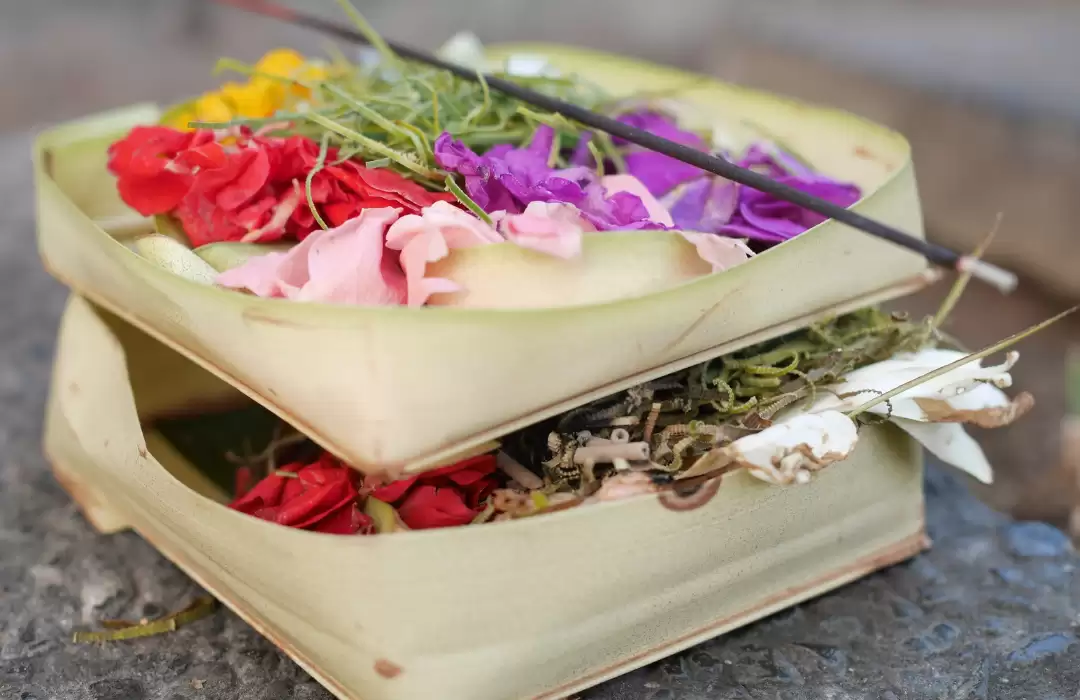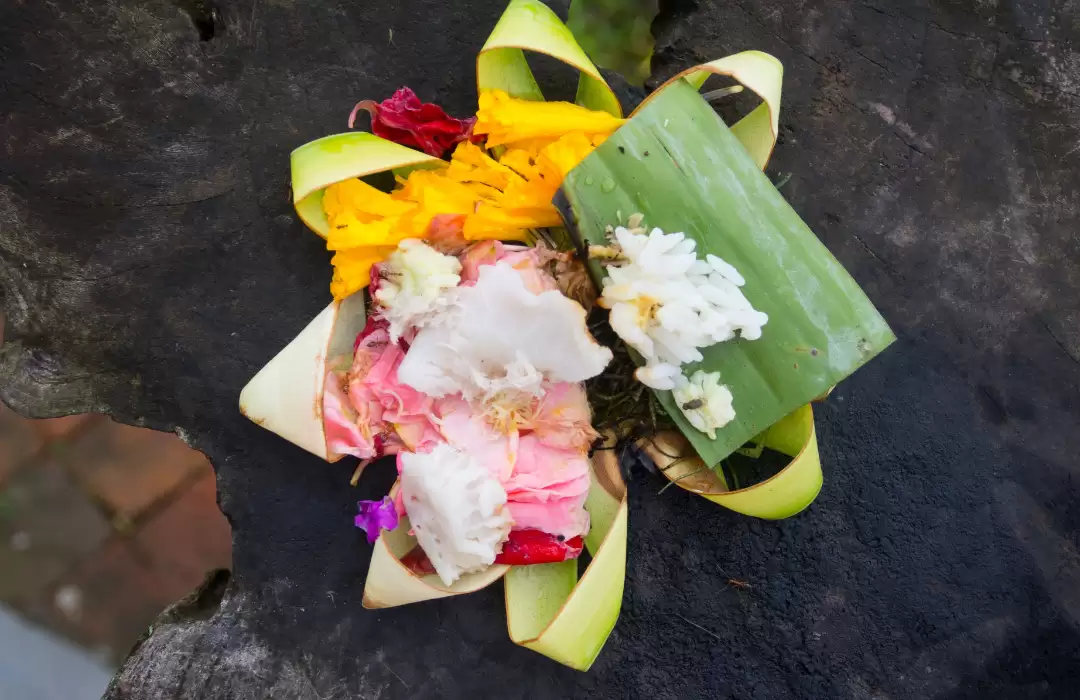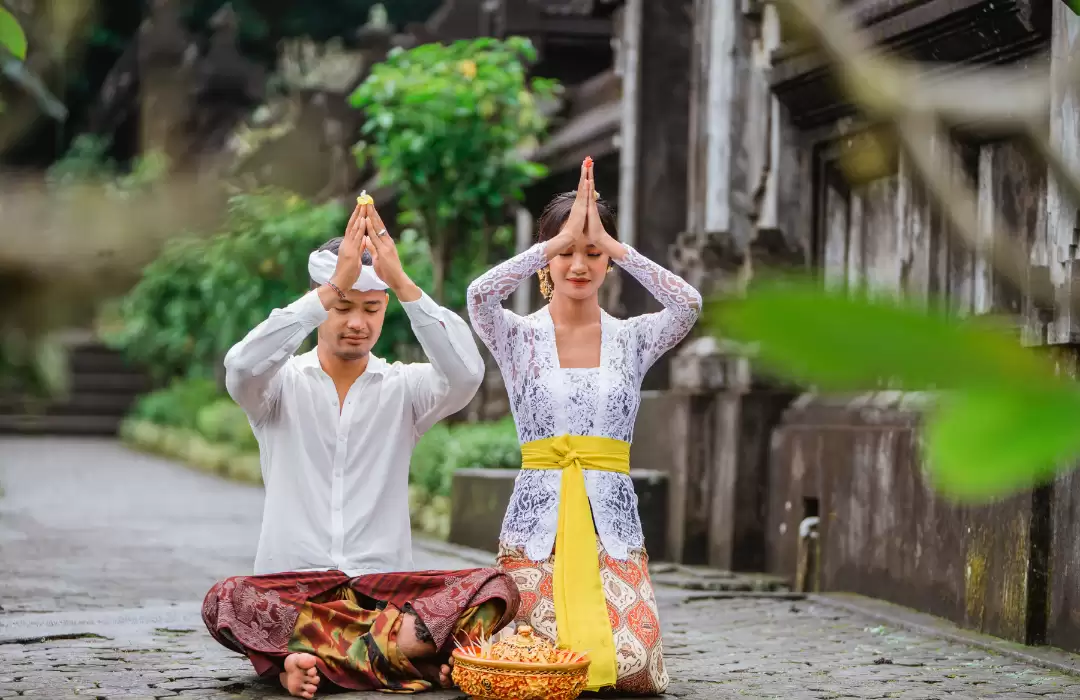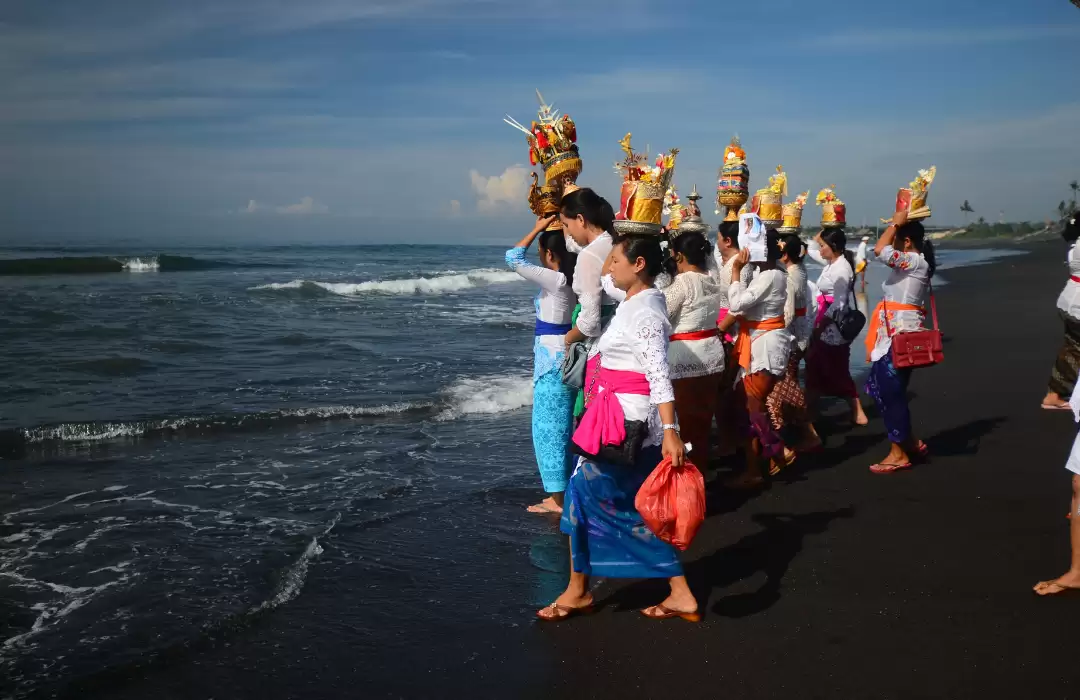Exploring Bali’s Spiritual Side: A Guide to Temple Etiquette and Traditions

Bali, known as the “Island of the Gods,” is a place where spirituality and culture intertwine seamlessly. The island’s temples and sacred sites are central to its spiritual life, and visiting these places provides a deep insight into Balinese culture. However, exploring Bali’s temples requires an understanding of local customs and etiquette to show respect for the traditions and beliefs that shape Balinese life. Here’s our guide to navigating Bali’s spiritual side with grace and understanding.
1. Dress Modestly and Respectfully

When visiting temples in Bali, dress modestly to show respect for the sacred nature of these places. Traditional Balinese attire is ideal, but visitors can follow these guidelines for temple-appropriate clothing:
Wear a sarong and sash: Sarongs are usually tied around the waist, while a sash (known as selendang) is worn around the waist as well.
Cover your shoulders: Avoid sleeveless tops and opt for clothing that covers your shoulders and knees.
Many temples offer sarongs and sashes at the entrance for a small fee or as part of the entry ticket. Bali Gate Tours includes sarongs and sashes for guests as part of our Cultural Temple Tour Packages, so you can explore comfortably and respectfully. Learn more on our Cultural Tours Page.
2. Observe Temple Manners and Customs

Respecting temple manners is crucial when visiting Bali’s sacred sites. Here are some general rules to follow:
Avoid pointing your feet toward the altar: In Balinese culture, pointing your feet at someone or something is considered disrespectful.
Don’t touch offerings: Balinese offerings, or canang sari, are seen throughout temples and villages. These small offerings are sacred, so avoid stepping on or disturbing them.
Refrain from climbing on structures: Temples are places of worship, so avoid climbing on statues or walls, even for a photo.
Bali Gate Tours offers guided visits to temples, where our knowledgeable guides explain these customs and ensure you have a respectful experience. Check out our Temple Etiquette Tours for more details.
3. Understand the Significance of Offerings and Ceremonies

Offerings and ceremonies are an essential part of Balinese spirituality. Every day, locals create and place canang sari offerings at temples, shrines, and homes. These offerings, made from flowers, rice, and incense, are a way for Balinese people to express gratitude and maintain harmony with the divine.
If you happen to witness a temple ceremony, observe from a respectful distance, and avoid taking photos unless you have permission. The atmosphere during these rituals is peaceful and reverent, and it’s a unique opportunity to experience Bali’s spiritual practices up close.
Our Cultural Tour Packages include visits during special ceremonies, allowing you to witness these rituals with guidance on how to participate respectfully. Learn more on our Cultural and Festival Tour Page.
4. Visit Bali’s Most Sacred Temples

Bali is home to thousands of temples, each with its own unique significance and architectural style. Here are some of the island’s most sacred temples that provide a profound insight into Balinese spirituality:
Besakih Temple (Mother Temple): Known as the “Mother Temple,” Besakih is Bali’s largest and holiest temple complex, set against the backdrop of Mount Agung. Its architecture and spiritual significance make it one of Bali’s must-visit sites.
Tirta Empul Temple: This water temple is famous for its holy springs, where locals and visitors alike participate in purification rituals. Tirta Empul offers a unique opportunity to experience Bali’s water-based spirituality.
Uluwatu Temple: Perched on a cliff overlooking the Indian Ocean, Uluwatu Temple is known for its evening Kecak dance performances and beautiful sunset views.
Bali Gate Tours provides a Temple Tour Package that includes these iconic sites, complete with guidance on temple etiquette and local customs. For a spiritual journey through Bali’s temples, visit our Temple Tours.
5. Participate in a Purification Ceremony at Tirta Empul

For those looking to participate in a Balinese spiritual ritual, Tirta Empul Temple offers a purification ceremony involving holy spring water. Visitors are welcome to join this ritual, where you dip in the temple’s pools as a form of cleansing and renewal.
To participate respectfully, wear a traditional Balinese sarong and follow the guidance of local temple staff or guides. The experience is deeply spiritual and allows visitors to connect with Bali’s unique form of Hinduism in a meaningful way.
Our Tirta Empul Purification Tour includes a guided experience, sarong rental, and insights into the ceremony’s significance. Join us on this spiritual journey by visiting our Temple Rituals Page.
6. Learn About Balinese Hinduism and Its Influence on Culture

Understanding Balinese Hinduism is key to appreciating the spiritual essence of Bali. Unlike other forms of Hinduism, Balinese Hinduism incorporates elements of animism, Buddhism, and local beliefs, creating a unique blend that’s rooted in daily life. Concepts such as Tri Hita Karana (the three causes of well-being) emphasize harmony between people, nature, and the divine.
As you explore Bali’s temples and cultural sites, you’ll see evidence of these principles in the island’s architecture, art, and ceremonies. Our Balinese Spirituality Tour includes explanations of these beliefs, offering a richer context to your temple visits. For more details, check out our Cultural and Spiritual Tours.
7. Show Respect to Monks and Priests

In Balinese temples, you may encounter monks, priests, or temple guardians conducting ceremonies or overseeing rituals. It’s essential to show respect to these spiritual leaders, as they hold a high status in the community. Avoid standing higher than them, and if they offer a blessing, it’s customary to receive it with gratitude.
Our guides at Bali Gate Tours provide etiquette tips to ensure that you interact respectfully with spiritual leaders. This guidance is included in all of our Temple Etiquette Tours, allowing you to engage in a culturally sensitive manner.
8. Leave Only Footprints and Follow “Leave No Trace” Principles

Bali’s temples and spiritual sites are often located in natural settings, such as mountains and forests. Following the Leave No Trace principles helps preserve these environments for future generations. Avoid littering, stay on designated paths, and refrain from touching or removing anything from the temple grounds.
At Bali Gate Tours, we prioritize eco-friendly practices in all of our tours, and our guides encourage sustainable travel habits. Learn more about our Eco-Tourism Packages that emphasize responsible exploration of Bali’s natural and cultural treasures.
Discover Bali’s Spiritual Side with Bali Gate Tours
Exploring Bali’s temples and spiritual practices is a journey that offers deep insights into the island’s culture and beliefs. At Bali Gate Tours, we provide Temple Etiquette and Spiritual Tours that guide you through the island’s sacred sites with respect and understanding, allowing you to connect with Bali’s spirituality authentically.
Ready to experience Bali’s spiritual essence? Contact us today to book your temple tour, or explore our Cultural and Spiritual Tour Packages for more inspiration. Let Bali Gate Tours lead you through a respectful and enriching journey into Bali’s sacred traditions.










